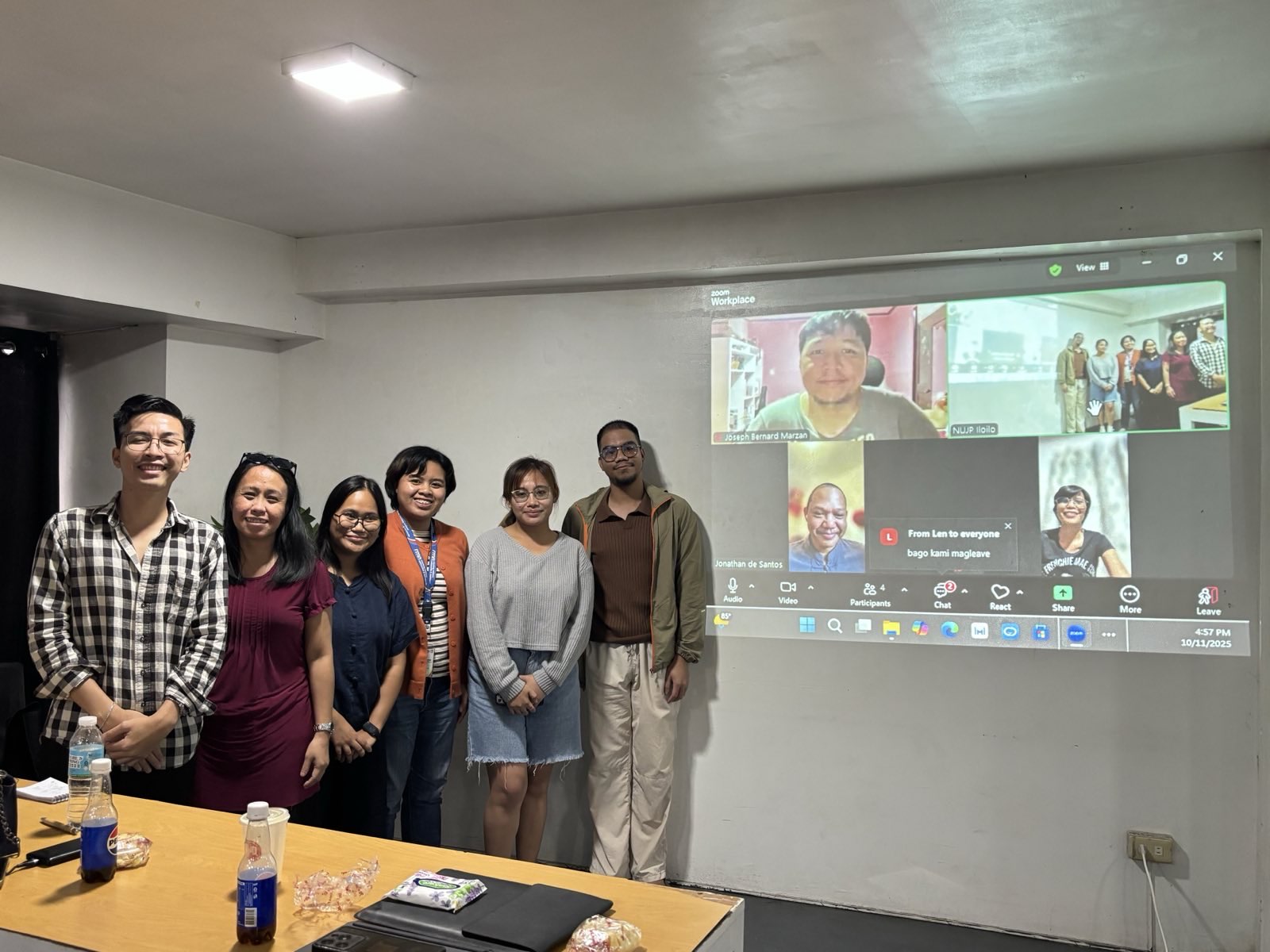By Joseph Bernard Marzan
ILOILO CITY– The National Union of Journalists of the Philippines (NUJP)-Iloilo chapter was revived October 11, holding its first general assembly since before the COVID-19 pandemic.
Rjay Zuriaga Castor of Daily Guardian and The Manila Times was elected as the chapter’s new chairperson, while long-time member Tara Katherine Yap of the Manila Bulletin was elected as its vice-chairperson.
Also elected were Julianne Judilla (Daily Guardian/Altermidya Panay) as secretary general; Joseph Bernard Marzan (Daily Guardian/Philippine Daily Inquirer) as treasurer; Allaine Kate Leda (RMN Iloilo/Philippine Daily Inquirer) as auditor; and Mai Ladiao (Panay News) and Julrod Prino (Panay Today) as safety officers.
During the general assembly, members also mapped the risks faced by media practitioners in the city and province of Iloilo.
On a scale of 1 to 5, Ilonggo journalists rated their exposure to risks at 3.6. Regarding the state of press freedom in Iloilo, they said that it was either generally free but with challenges or somewhat restricted.
The two biggest threats they identified were poor working conditions or economic insecurity, and harassment, whether legal, online, or political.
Almost all of the journalists surveyed said that they only feel somewhat prepared to handle safety and security risks when they are reporting, while one said that they are not prepared at all.
Among support systems, they identified the lack of economic support as the most lacking, followed by safety and risk management training, digital safety and security, legal support, mental health support, and peer solidarity.
When it comes to economic challenges, most of them identified low wages and benefits as the most pressing, but many also cited advertising pressures from businesses and political groups influencing editorial content, job insecurity due to the decline of traditional media, and financial reliance on sources or political patrons for coverage support.
The threats and lack of support systems also affect their coping mechanisms, with most of them saying that they get by through the help of family, friends, or faith.
Other coping mechanisms include support from their editors, newsrooms, or their peers, while only a few received coping or resilience strategies come from advocacy groups, legal knowledge, and digital safety tools.
It is with these risks that Castor underscored the importance of NUJP Iloilo’s revival, saying, “We are back not because we simply wanted to be, but because we need to be.”
“The revival of NUJP Iloilo is not just about bringing the union back to life. It is a response to a real and urgent need — one that reflects the changing and increasingly challenging landscape of journalism,” Castor stated.
“Across the country, journalists continue to face harassment, red-tagging, and attacks on press freedom. Local media workers are not exempt and, in fact, local journalists often operate with fewer resources, weaker institutional protections, and greater vulnerability to local power dynamics. In this environment, a united front is more crucial and valuable than ever,” he added.
Castor said that the chapter will strive to respond to the needs of its members. He said priorities include libel awareness, digital and physical safety, labor rights, and risk management, among others.
“Moving forward, we will push for an Iloilo press that is free, safe, supported, and united. The challenges are real — but so is our collective strength,” he added.
Earlier in August, NUJP created an ad hoc committee following the revival of its Iloilo chapter. The committee, also led by Castor, was created to oversee the chapter’s preparations ahead of its elections and general assembly.




